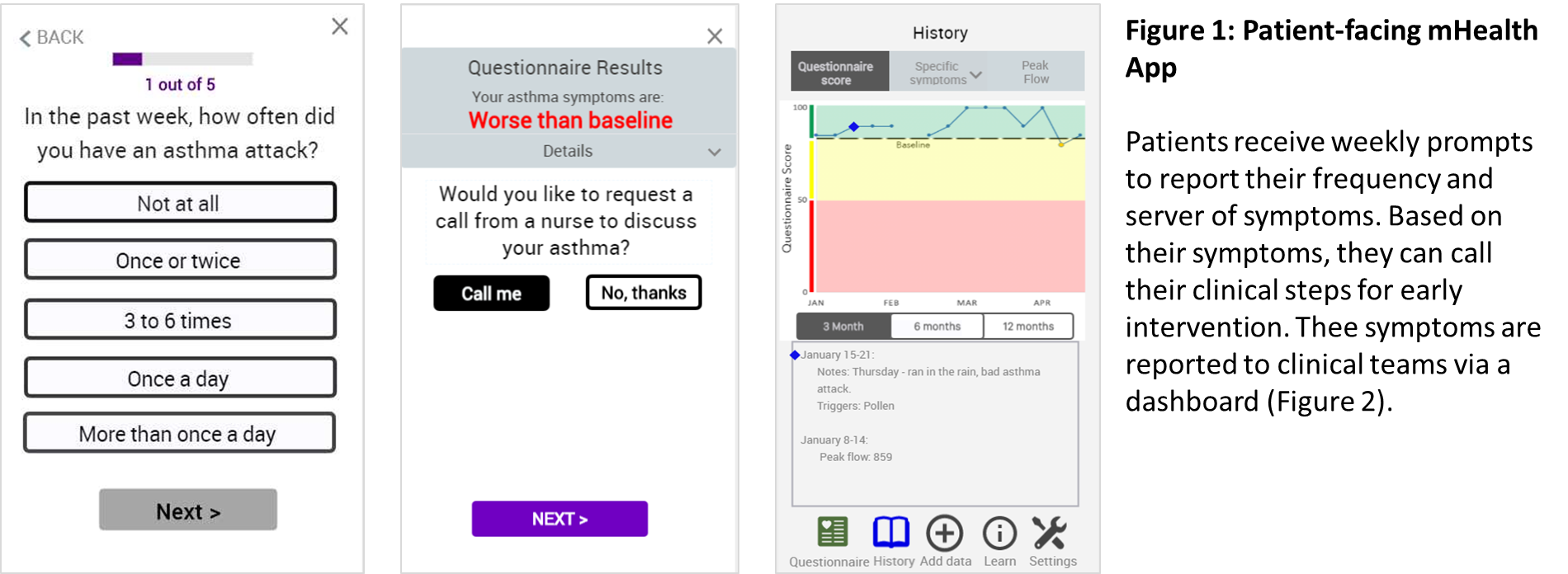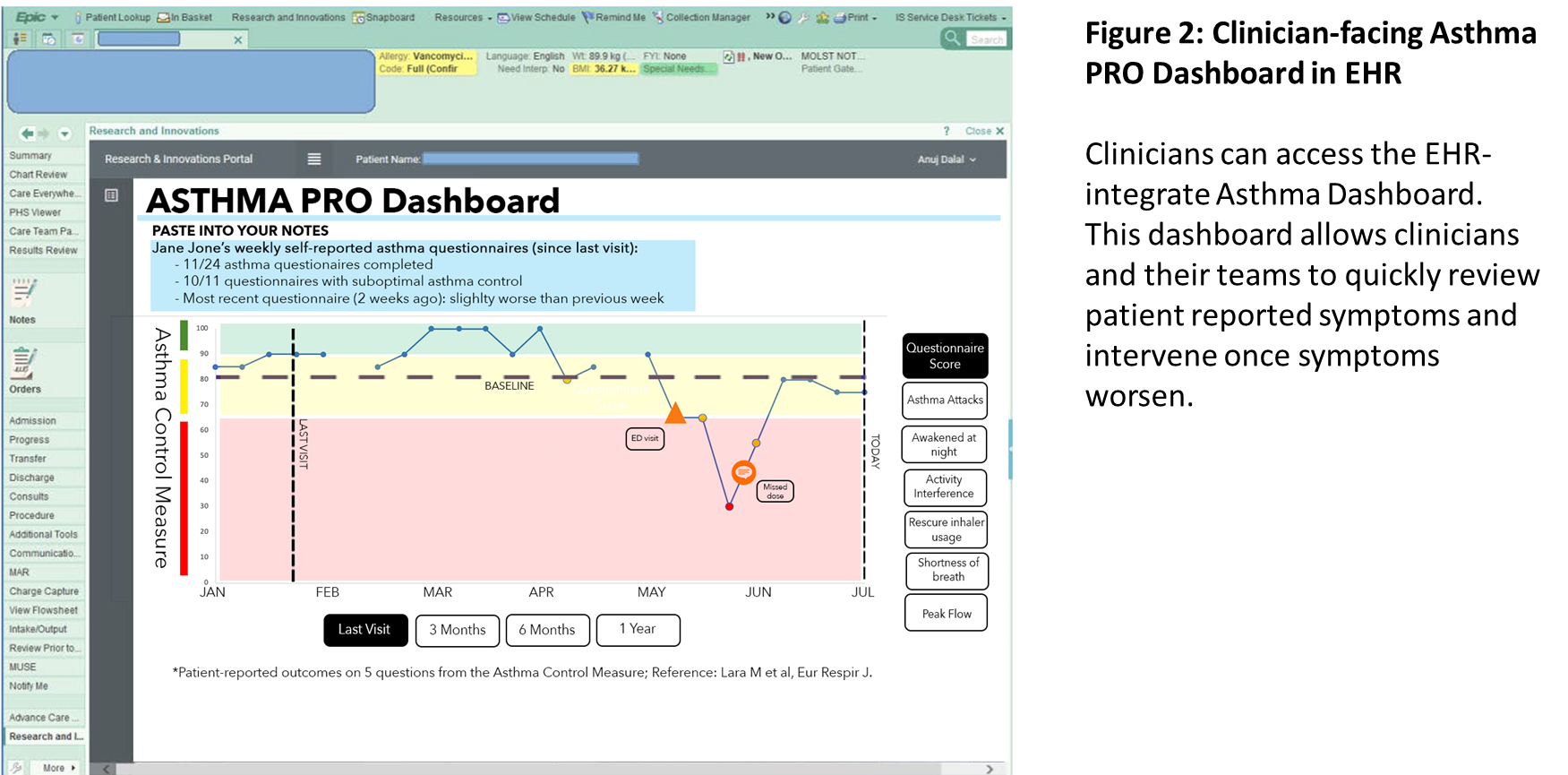Background: Uncontrolled asthma leading to emergency department (ED) visits and hospitalization causes suffering, disproportionately among underserved patients, and are costly to healthcare systems. Timely treatment and adherence to clinical guidelines via serial monitoring of patients’ reported symptoms, offers the opportunity to improve health outcomes that are important to patients, clinicians, and accountable care organizations (ACO). Use of patient-reported outcomes (PROs) could promote earlier detection of symptom deterioration and intervention, thus decreasing ED use and hospitalization. To date, there has been little progress in collecting PROs and reporting these symptoms to clinicians between encounters. Interventions that facilitate monitoring of asthma symptoms during this interval offer a promising strategy to improve symptom control and quality of life, as well as reduce unnecessary healthcare utilization. However, little is known about the nature of exacerbations that could be prevented by these kinds of between-encounter interventions.
Purpose: As part of an AHRQ-funded study (R18 HS026432), we are developing a novel health IT-enabled practice model that enables real-time collection and communication of PROs within our ACO. To understand opportunities for this intervention to prevent hospitalizations, we analyzed patterns of clinical deterioration leading to hospitalization.
Description: The platform (Figure 1) will serve a diverse population, including Spanish-speaking and low health literacy patients. The core components include a mobile health app to self-report asthma symptoms using the Asthma Control Measure, an EHR-integrated dashboard for real-time data visualization by clinicians (Figure 2), EHR-integrated messaging for patient-initiated call-backs, and a practice model to monitor patient symptoms and to facilitate intervention prior to inpatient encounters. Using administrative data, we reviewed 376 adult asthma inpatient hospital encounters (271 unique patients) between 10/1/2017 and 9/30/2019: 285 (76.0%), 53 (14.1%), and 38 (10.1%) were triaged from the ED, urgent care, or admitted electively, respectively. Of the 271 patients, 205 had 1 hospitalization, and 66 had 2 or more hospitalizations. Of the 376 hospital encounters, only 65 (17%) had a preceding outpatient interaction in the month prior to admission, excluding the ambulatory encounter leading to hospitalization. This lack of pre-admission interaction reveals an opportunity to empower and engage patients proactively when they are actively deteriorating, but prior to utilization of high cost services. Assuming prevention of 376 asthma-related hospital encounters at $5000 per hospitalization over this 2-year period, the net cost savings is estimated at $1,880,000
Conclusions: Proactively capturing PROs and reporting to clinicians remotely will enable earlier identification and management of asthma in those patients who are actively deteriorating. We plan to target this intervention to those patients who are frequently hospitalized with the goal of reducing and eliminating unnecessary hospitalizations. This will not only lead to more effective use of hospitalist services, but an opportunity to consider the role of hospital medicine as population-based strategies come to fruition. Ultimately, we will be able to transition asthma care from a reactive to proactive asthma care delivery model, while simultaneously improving asthma-related quality of life.


